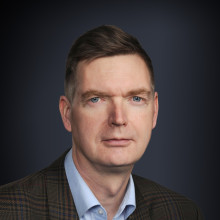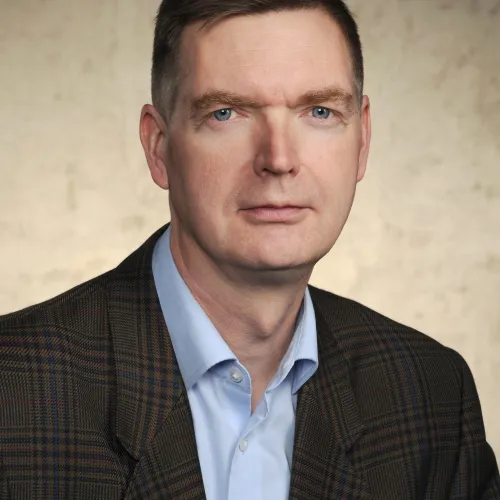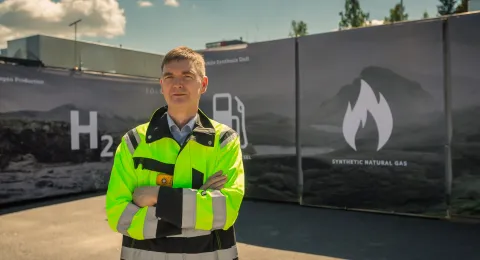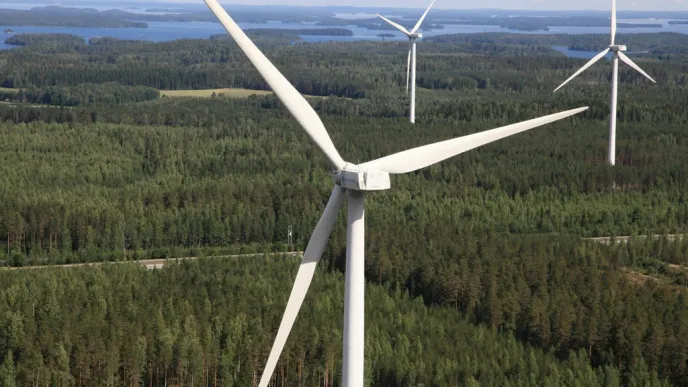Olli Pyrhönen, dean of the LUT School of Energy Systems, didn't stumble upon a career in technology by chance. Rather, studies and research in the field were a natural continuation of his “childhood tinkering”.
“I used to take apart, assemble, and attempt to repair technical gadgets. I fixed mopeds, worked on our family cars, and built boats with my dad and brother. Dad even got us welding gear, which led to me welding my own car and those of my friends. We also had an old tractor we worked on restoring.”
After he graduated from upper secondary school, Pyrhönen enrolled at LUT University – then going by the name of Lappeenranta University of Technology – to study energy technology. Born and raised in South Karelia, the local university was a natural choice for him, regardless of the fact that it didn't offer a full degree programme in electrical engineering, which was his true passion.
“I complemented my electrical engineering studies as an exchange student in Aachen, Germany. They offered me a doctoral student position, but I declined – I wanted an industry job. And I got one,” Pyrhönen recalls.
After a few years in product development at AAB, he started to warm up to the idea of research work. Meanwhile, he started to feel a strong pull back to South Karelia, where also his spouse hailed from.
A two-decade research career makes a dean’s life easier
Pyrhönen obtained his doctoral degree in 1998. His active research career ended when he was appointed dean of the LUT School of Energy Systems in 2020. However, an extensive background in research makes his current work easier.
“As a dean, I provide support for all the school's research fields. It’s important that I understand, to a reasonable degree, what our professors are researching and am able to express views on the research collaboration we conduct with other universities in Finland and Europe. Nonetheless, I do understand that our school has a wide range of experts whose opinions also matter when we plan our school's future.”
Pyrhönen says LUT has comprehensive expertise related to energy transition research. The School of Energy Systems alone includes departments in electrical engineering, energy technology, mechanical engineering, and sustainability science. Alongside technological advancements, their projects nearly without exception examine related environmental impacts. LUT is also the only Finnish university with a professorship and research group in nuclear engineering. LUT has a strong international reputation in the modelling of energy systems.
“We should bear in mind that individual research groups can’t conduct extensive technoeconomic surveys. For example, the HYGCEL project we are coordinating examines the hydrogen economy, which requires quite a few experts from both the academic and the corporate world. LUT is by no means the only place with knowledgeable people,” Pyrhönen points out.

On the cusp of a golden age for the electricity industry
Pyrhönen is following the current energy discourse with great interest and makes it a point to take part in it. For example, he contributed to LUT's energy report in 2022, which the university published to promote political and societal dialogue in the field. An updated version of the energy report will be released in the first half of 2024.
“We in the electricity industry are on the cusp of a golden age because electrification and the role of electrical energy have grown significantly. It’s an absolute privilege to be part of this enormous transformation.”
As much as 80 percent of the world's energy is still produced from fossil raw materials. Giving up fossil energy is a considerable challenge that has yet to be overcome. No one has an exact idea of what a fossil-free energy system will consist of.
“In related discussions, researchers tend to make the case for their own field of technology. It’s just human nature. Personally, I believe the solution lies in utilizing different technologies and optimizing their joint use.”
Renewable energy a possible export market for Finland
Regulation by the EU, including emissions trading and renewable energy directives, also influence the energy system and, consequently, Finnish energy policy. For instance, it determines how appealing the hydrogen economy is to investors.
The energy transition will reshuffle the energy markets. It will provide Finland and the other Nordic countries an opportunity to strengthen their renewable energy infrastructures and to export energy and especially its downstream products.
“We have excellent wind conditions, a great deal of square footage, and a functional energy infrastructure. We can produce renewable energy at a low cost.”
However, Pyrhönen points out that the utilization of renewable energy in contexts such as industry requires more than mere energy generation. The production quantities of renewable energy vary depending on weather conditions, which requires new types of flexible production processes.
“Hydrogen production has the greatest potential for flexibility in industrial use. It's ultimately a question of overall optimization that requires multidisciplinary expertise and research data,” he states.
According to Pyrhönen, the behind-the-scenes debate on the matter is intense. Pyrhönen hopes that Finland has the courage to pioneer in building a sustainable energy system.
“It would have a positive impact on our national economy and well-being.”
LUT School of Energy Systems
- Includes the departments of energy technology, mechanical engineering, electrical engineering, and sustainability science.
- The school's research deals technology and systems for energy production, transfer, distribution, and consumption – from device manufacture and fuels to energy end use.
Key research themes
- Electrification and power-to-x
- Sustainable energy market transition
- Carbon-neutral energy production
- High-speed drives and turbines
- Energy system modelling
- Industrial data science and Internet of Things (IoT)
- Advanced design, manufacture, and processing
Smart load control and solar power for the summer house
Pyrhönen's job as a dean is rather all-consuming, but his passion for energy and electrical engineering hasn't dwindled despite the passing of time.
Pyrhönen spends much of his free time at his island cottage in the rural town of Savitaipale. He has, of course, harnessed solar panels for electricity production.
“We're in the process of building a larger cottage on our lot, and I’m designing a smart load control system and a larger solar power plant for it. You could say I've never stopped tinkering in my spare time.”






